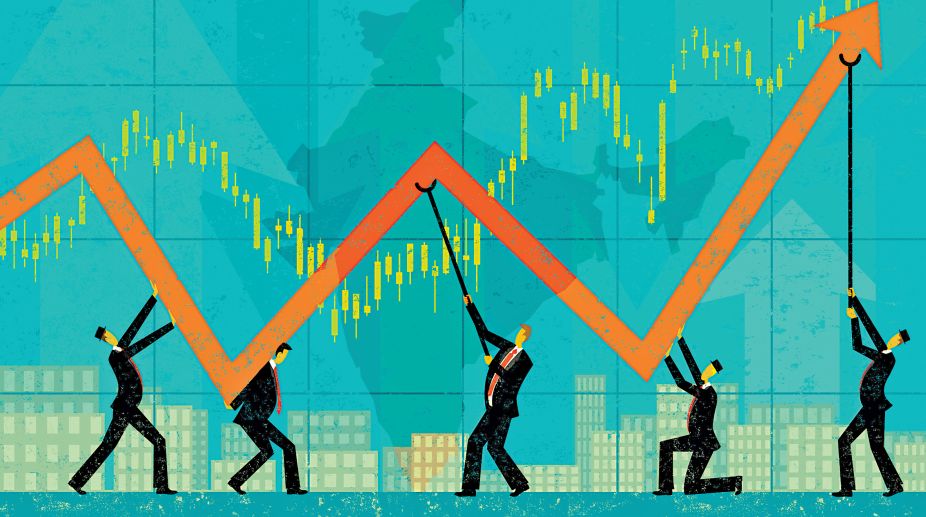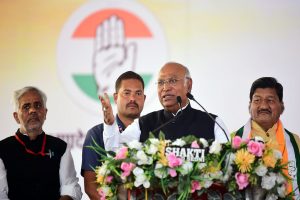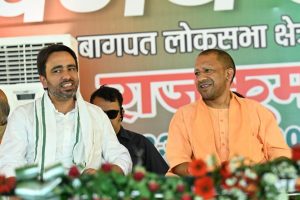There are 10 issues that need to inform public discourse around the economy and the aam aadmi, especially on the eve of the final full-year budget before Prime Minister Narendra Modi seeks another popular mandate.
These are at variance from Arvind Subramanian’s significant 10 presented in the Economic Survey but should be more to the point because their overarching message is that the aam aadmi increasingly matters less and less. The poor, of course, have seldom mattered.
1) For all the hullabaloo around growth and fast-paced development, at around 6.5 per cent growth has been the slowest in recent times.
2) Partaking of this growth is India’s richest one per cent that holds 58 per cent of its total wealth; this elite group outsmarting its global competition that managed to lay its hands on an average of around 50 per cent of the wealth.
The agonizing details of the Oxfam survey are in public domain. (https://www.oxfam. org/sites/www.oxfam.org/files/file_attachments/bp-reward-work-not-wealth-220118-summ-en.pdf).
India’s top one per cent holds 73 per cent of the wealth while 67 crore citizens — the poorest half — had the pleasure of a one per cent increase. This segment accounts for the largest share of the global bottom 50 per cent pie.
3) If the global economy shrinks, India is in for further trouble vis-a-vis global investments or export markets. In any event, big Indian corporates deliver poorly on the export front when compared to global contemporaries.
4) The oil price cushion is threatening to remove itself. Remember oil prices more than halved between 2014 and 2015 leading to a 0.9 per cent of the GDP windfall vis-a-vis lower subsidy outgo and collateral benefits.
5) The country’s banking system; the repository of its financial wisdom, continues to be in a shambles courtesy a bad-loan pile up that is upwards of Rs 7 trillion; much of it owed by the same one per cent wealthiest.
6) The Consumer Price Index indicates an acceleration in retail inflation with higher commodity and food prices. They were at a 17-month high in December 2017 and a Reuters poll of analysts projects that December’s CPI inflation will rise to 5.10 per cent from November’s 4.88 per cent.
7) Retail food inflation rose 4.96 per cent in December 2017 from 4.35 per cent in November. Cost of food and dairy products, accounting for between 30 per cent and 40 per cent of the aam aadmi spend, has been increasing upwards of 12 per cent. This price rise is an instrument of overall impoverishment and of denial of access to basic needs.
8) The farmer is slowly being decimated under a barrage of propaganda about doubling his income in six years. Even conservative estimates place the median agriculture income at around Rs 1,600 per month, which cannot sustain a family. Official figures talk of a lower gross value-added growth (GDP minus taxes and subsidies on products), at 1.7 per cent in 2017-18 (4.1 per cent in the second quarter of 2016-17). There has been a 2.8 per cent decline in foodgrain output in the Kharif 2017-18 season. The farm sector situation is frightening.
9) India’s growing corruption levels are alarming especially given the propaganda around clean governance. India ranked 79th in the Corruption Perception Index 2016 in the just released Transparency International report. “India’s ongoing poor performance with a score of 40 reiterates the state’s inability to effectively deal with petty corruption as well as large-scale corruption scandals. The impact of corruption on poverty, illiteracy and police brutality shows that not only the economy is growing – but also inequality”, says the report.
10) A badly designed, poorly executed Aadhaar scheme with questionable biometrics has succeeded in dispossessing a large segment of the sections service to whom should have been the government’s primary focus. The scandalous breach of data apart, Aadhaar increasingly represents a breach of faith on the part of the government against the governed.
The Union Budget has long lost its gravitas as there remains precious little sacrosanct about it. Round-the-year interventions, financial or otherwise, at the behest of various interests easily alter the policies that the budget sets out to finance. Much of India muddles along and it is possibly in the fitness of things that the country should celebrate the one per cent that is making merry.
The writer is a veteran business journalist.











